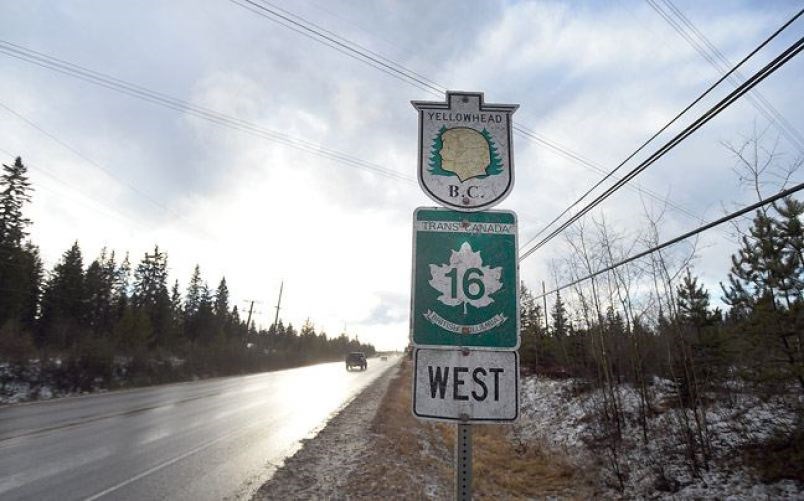Prince George is being asked to commit $50,000 annually over three years to support a new inter-community transit service along Highway 16 West.
That preliminary number and others for communities along the corridor from Prince Rupert and Prince George was presented at the Bulkley-Nechako Regional Transit Committee meeting Oct. 26.
That same day, the province announced $2.4 million would go to toward the 750-kilometre route as part of the $5 million in federal and provincial funding put towards the Highway 16 Action Plan.
Eighteen women have been murdered or have disappeared along the stretch - also known as the Highway of Tears - and adjacent routes since the 1970s.
For this route, the province is offering what it calls an "enhanced" cost-sharing formula over the three years. It gave route service estimates and the transit committee worked out the local estimates.
The proposed rates for smaller communities were mainly based on per-person calculations - $5 for communities along the corridor and $1 for off-corridor locations like Fort St. James and Granisle. That math would have pushed Prince George's share to the $350,000-range.
"As of the result of that it was deemed by our transit committee to be too high a number to ask Prince George contribute in relation to the population of the rest of the user group," explained Melany de Weerdt, chief administrative officer for Bulkely-Nechako.
Next highest is Smithers, at $24,660, then Vanderhoof at $22,460, then Houston at $15,600, followed by Burns Lake, Fraser Lake and Telkwa - all at under $10,000. Off-corridor communities - like Takla Lake First Nation, Lake Babine, Tl'azt'en First Nation and Skin Tyee First Nation - would pay anywhere between $15 to $524.
De Weerdt stressed these are preliminary numbers said she's yet to hear back from Prince George. That's likely because the city is still catching up on the details of the request and its involvement.
At last week's public meeting, councillors called for more clarity around the funding commitment and time frame. De Weerdt said the funding requests and decisions are all currently being made based on the province's three-year commitment.
"It'll be reevaluated by the transit committee as the service proceeds."
BC Transit asked that feedback on the service options be sent in by Nov. 10, but councillors said that would be too tight.
Mayor Lyn Hall said he would first need to consult with the Regional District of Fraser-Fort George and the Lheidli T'enneh.
Two on Prince George's council volunteered to sit on that transit committee: Hall and Coun. Jillian Merrick, who criticized the process.
"The one thing I would suggest we essentially demand out of this is that there's been an ongoing problem of leaving us out of the conversation and to eliminate that I would suggest we have to have a spot on this Bulkley Nechako regional transit committee... because the sort of voluntary inclusion of us has not been successful thus far," said Merrick at last Wednesday's meeting.
On Thursday, Merrick said the suggested $50,000 seems reasonable and the proposal as it stands has her support.
"I think it's good value and good service and Prince George will benefit from a lot from it," she said.
She wasn't clear if the route extended to the Lheidli reserve and said it would be important to talk to the First Nation about what it wants. Her focus when she joins the committee will be making sure the transit system fulfills the need for which it was created.
"It's really intended to serve the people who are at risk... and may not have the purchasing power to purchase private transportation," she said. "That would be the main goal for me as a community is to figure out ways of ongoing monitoring and modify the program so it meets that criteria."
De Weerdt said to move forward the transit committee will need sign-off from the communities and then it will have to develop a service establishment bylaw that lays out the participants, the service and how those costs are broken down.
"We're hoping to present the bylaw to our board on December 15," she said.
"We are anticipating that all of the municipal councils will consider the topic... and bring back responses to our next regional transit meeting, which is scheduled for next Thursday."
Hall said he expects to report back to city council on the project at the Dec. 5 meeting.
"We still have our homework to do around this process."



